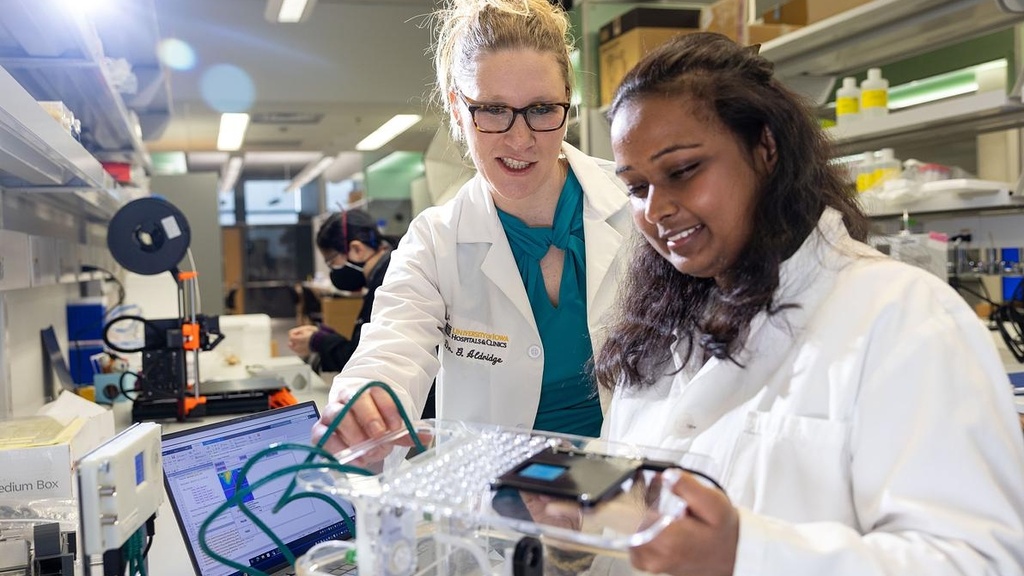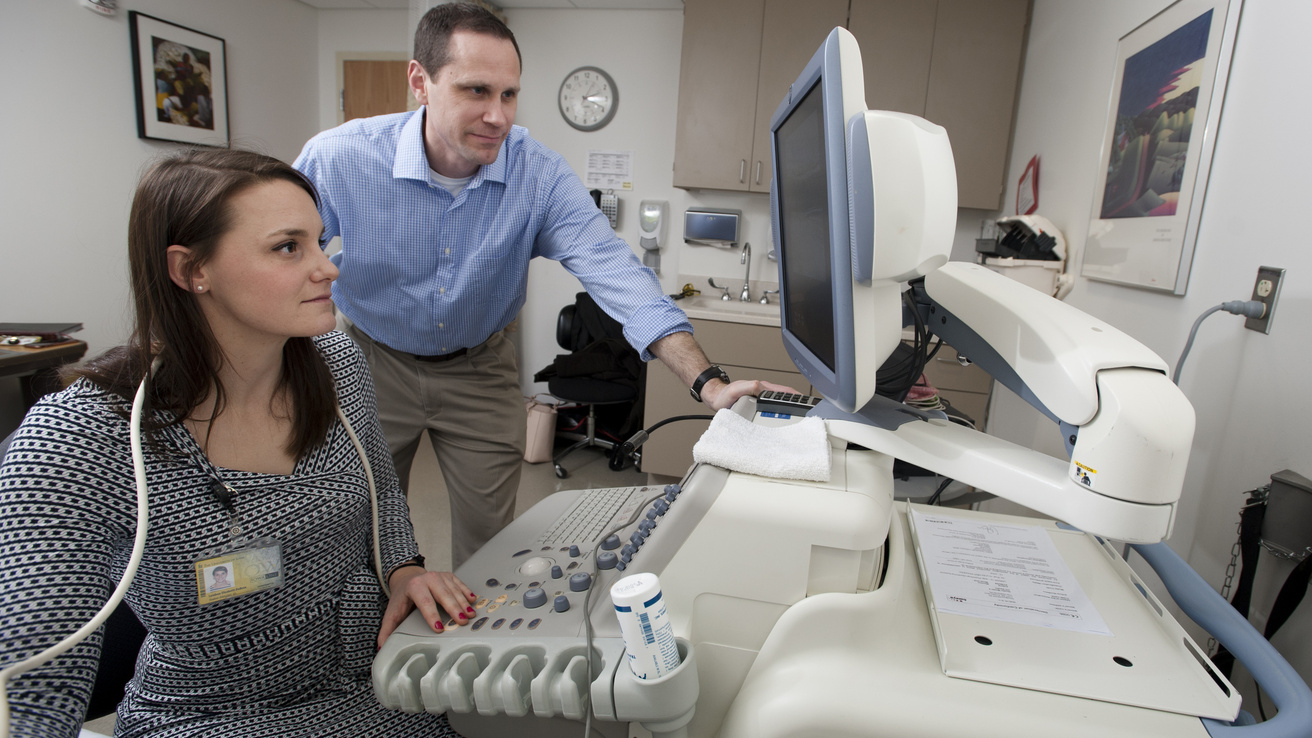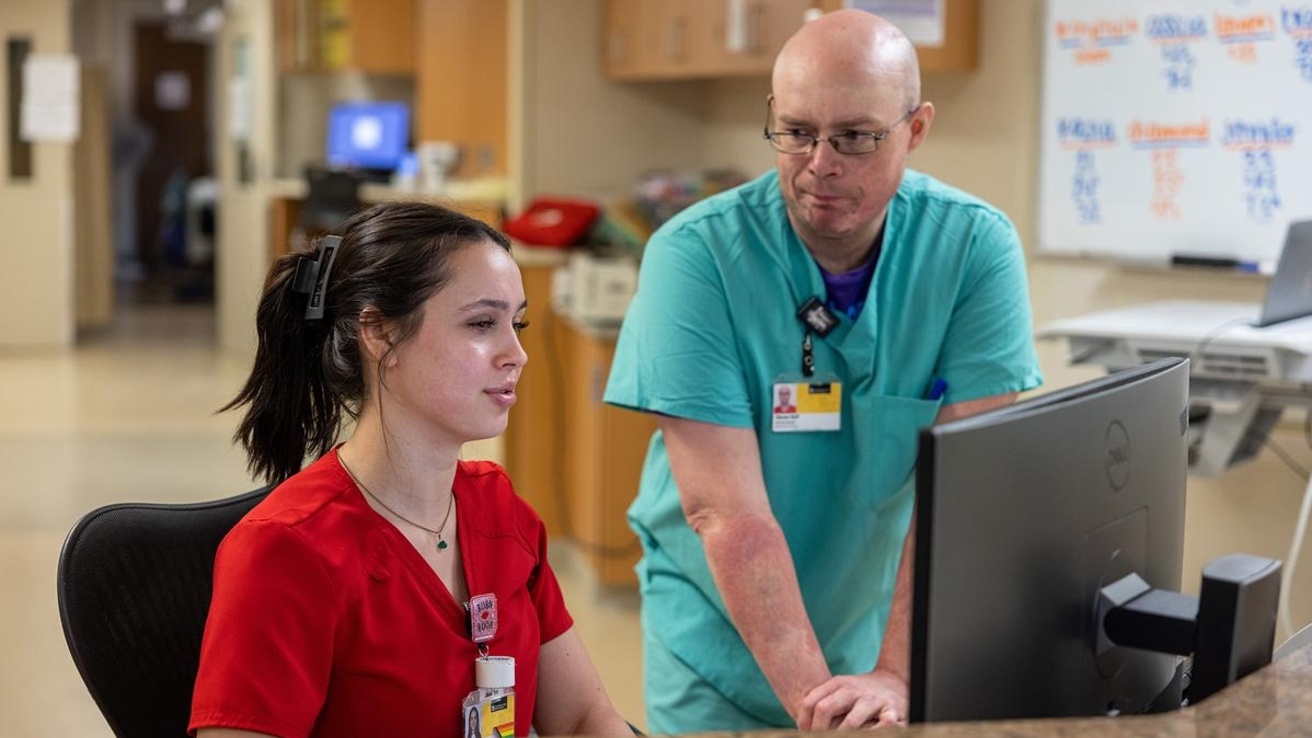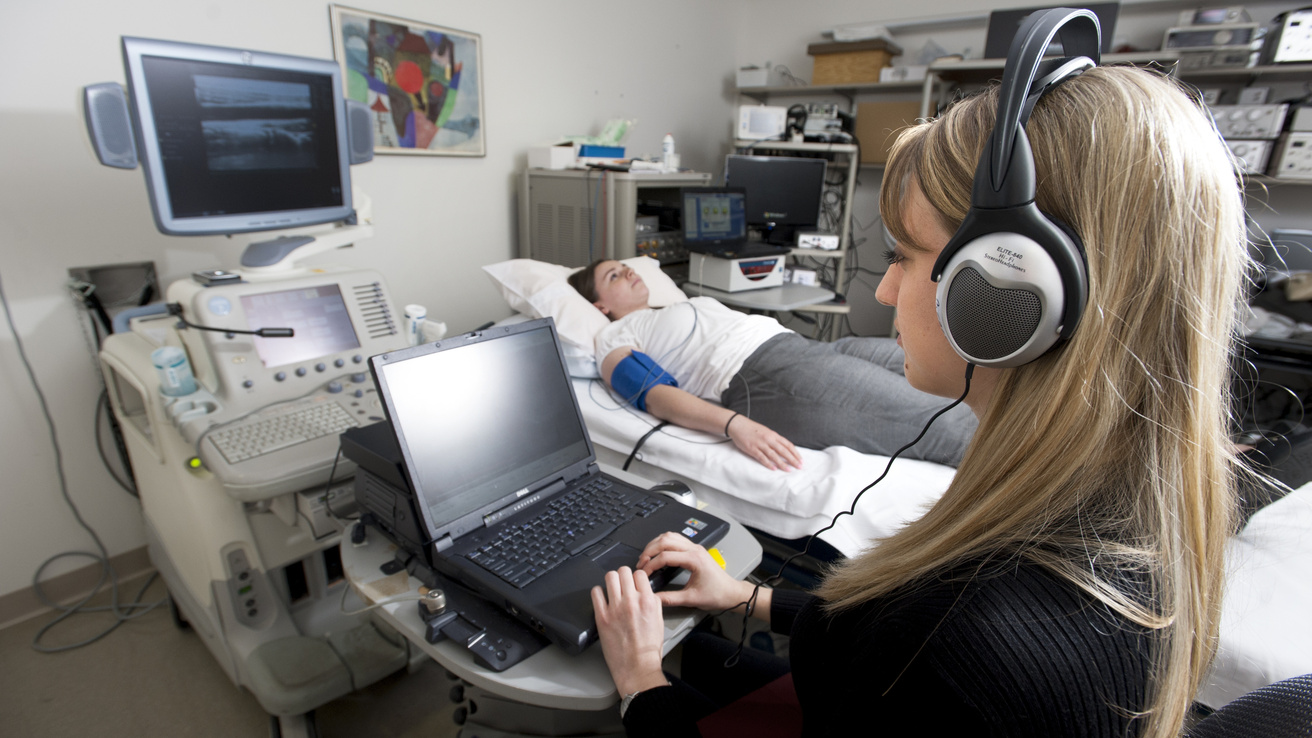Sustainability and Health
Environmental sustainability and human health are deeply interconnected. At the University of Iowa, efforts to promote clean air, active transportation, and access to nutritious food contribute to overall wellness. The university’s healthcare system is also advancing sustainability by reducing waste, lowering emissions, and creating healthier environments for patients, staff, and the community.
Nature Heals
Exposure to hospital green spaces has been associated with a range of positive health outcomes, including improved mental health, reduced anxiety, and faster recovery from illness or surgery

Put Nature To Work
Discover simple ways to bring nature into your workspace to boost well-being.

Practice Greenhealth
The health care sector’s go-to source for information, tools, data, resources, and expert technical support on sustainability.



Sustainability at Iowa Health Care
Learn how Iowa Health Care integrates sustainability into its day-to-day operations.
Energy
The United States EPA ranks inpatient healthcare as the second largest commercial energy user in the U.S., consuming nearly 10% of the total energy used in commercial buildings. To reduce negative health impacts associated with energy production and consumption, Iowa Health Care is committed to reducing its energy usage by improving energy efficiency and supporting the UI’s renewable energy goals.
Energy Conservation at Iowa Health Care
- LED Lighting: Iowa Health Care has reduced and will continue to reduce its overall energy consumption by replacing outdated lighting fixtures with high-efficiency LED lighting. LED lighting uses less energy than fluorescent or incandescent bulbs and lasts longer which reduces the maintenance costs to replace burnt-out bulbs. Iowa Health Care requires LED lights for all new or renovated buildings.
- Occupancy Sensors: Iowa Health Care uses occupancy sensors to reduce energy usage. When no movement has been detected for a certain amount of time, the sensors automatically shut off lights, adjust heating/cooling temperatures, and reduce air flow through the ventilation system. All of this reduces energy usage during times when facilities are not in use.
Renewable Energy
- UI Power Plant: Iowa Health Care buildings on Main Campus are heated using steam generated at the UI Power Plant. The steam is also used for some sterilization procedures in Iowa Health Care facilities. The Power Plant utilizes renewable fuels for 45% of its steam production. The UI Power Plant uses oat hulls, miscanthus grass, and energy pellets as part of its renewable fuel portfolio to replace coal by 2025.
Landfill Trash
Landfill Trash Protocols:
- Staff, patients, and visitors are responsible for placing trash into the appropriate landfill receptacles throughout the hospital (e.g., in offices, break rooms, waiting rooms, hallways, etc.). Learn what can go to the landfill here.
- Environmental Services staff collect trash from all landfill receptacles (except Tiny Trash bins) daily.
Tiny Trash
- Participants in Tiny Trash trade in their desk-side trash can to receive a Tiny Trash bin that conveniently attaches to the side of a standard desk-side recycling bin. The Tiny Trash bin reduces Iowa Health Care plastic trash bag waste by eliminating the need for replacing plastic trash liners daily.
- To request a Tiny Trash bin, contact Iowa Health Care Environmental Services by calling 159 or submit a request online.
Plastic Trash Bag Waste
- Waste audits of Iowa Health Care landfill trash show that 5-10% of Iowa Health Care's total landfill waste consists of plastic bags used to line trash cans. These liners are changed daily by Environmental Services staff, regardless of how much material is in the bag. Removing unnecessary and redundant trash cans reduces the number of plastic liners that are purchased and landfilled. To request trash can removal, contact Environmental Services by calling 159 or request online.
Recycling
Recycling Protocols:
- Staff, patients, and visitors are responsible for placing recyclable materials into the appropriate recycling receptacles throughout the hospital (e.g., in offices, break rooms, waiting rooms, hallways, etc.). Learn what can be recycled here.
- Environmental Services staff collect recyclable materials only from recycling receptacles that are 32-gallons or larger. They collect recyclables Monday-Friday, as needed.
- Recycling receptacles smaller than 32-gallons in size are not emptied by Environmental Services. Iowa Health Care staff utilizing the smaller receptacles are responsible for emptying the materials into a 32-gallon (or larger) receptacle.
Cardboard Recycling:
- In some areas, cardboard is collected separately from other recyclables. Contact your department manager to determine if your area collects cardboard separately. Please flatten cardboard before placing it in any recycling receptacle.
Reducing and Reusing
Anesthetic Gases:
Iowa Health Care is working to reduce the environmental impact of its operations by addressing the use of anesthetic gases with high global warming potential. These efforts include evaluating alternative anesthetic agents with lower emissions, optimizing delivery systems to minimize waste, and exploring new technologies and protocols that reduce the release of harmful gases into the atmosphere.
Compression Sleeve Garment Reuse:
- Iowa Health Care participates in the Currie Medical Re-Cur Program—which reprocesses non-invasive Alternating Leg Pressure (ALP) garments to be reused at hospitals across the US—collecting more than 15,000 ALP garments through the Re-Cur Program annually.
Exam Table Paper Alternatives:
- Some clinics have eliminated the use of exam table paper by sanitizing exam tables and placing a “This table has been sanitized” placard on the table. Other clinics have replaced exam table paper with reusable linens that are cleaned and sanitized after use.
Linens:
- Iowa Health Care utilizes UI Laundry Service to clean and sanitize over 16,000 pounds of linens each day. This amounts to 6,000,000 pounds of linens cleaned annually, avoiding the economic and environmental costs of purchasing and disposing of single-use linens.
Reusable Disposal Containers:
- Iowa Health Care replaced its disposable sharps and chemotherapy collection containers with reusable containers that are cleaned and sanitized. The switch to reusable containers prevents over 40,000 containers from being put in the landfill or incinerated annually. This prevents over 60 tons of waste and creates a cost savings of more than $350,000 per year.
- “A complete life cycle assessment of reusable and disposable containers reveals that the overall ‘carbon footprint’ of the reusable container can be up to 76% less than that of disposable container.” -Daniels Health
Surplus Property:
- All University-owned items must be disposed of by University of Iowa Surplus. Learn more about the UI’s Surplus Policy.
Composting and Food Waste
Compost Protocols
- Food waste from kitchen prep (e.g., potato peels, eggshells, etc.) as well as consumer food waste left over after meals is composted. Food waste that is left on plates/trays in the cafeteria and sent through the dish return line is sorted by Food & Nutrition Services (F&NS) staff into compost bins and sent to the Iowa City Compost Facility. Find out what can be composted here.
- F&NS offers some compostable service ware for to-go food and beverages. Staff who take food or drinks to go may return compostable to-go containers and compostable food waste to the dish return line in the cafeteria for composting.
- Iowa Health Care composts over 230,000 lbs. of food waste annually, including food waste from Iowa Health Care dining rooms and uneaten food returned from inpatient care.
Food Waste Reuse and Reduction
- Iowa Health Care Food & Nutrition Services (F&NS) donates over 16,000 lbs. of edible food to local food recovery organizations annually. F&NS utilizes meal forecasting software to reduce over production of food served in Iowa Health Care dining facilities.
Transportation
While transportation of people and materials to and from facilities is critical to providing safe, quality, patient care, Iowa Health Care is committed to reducing the negative health impacts associated with its transportation-related emissions. Find sustainable transportation resources here.
Research, Reports, and Other Resources
- Report: Health Care's Climate Footprint
- Center for International Environmental Law's Research and Publications Page
- World Health Organization on Healthcare Waste
- Climate, Health and Equity Policy Action Agenda Resources
- Environmental Sustainability in Hospitals: The Value of Efficiency
- Key Initiatives from the Most Sustainable Hospitals
- Intergovernmental Panel on Climate Change (IPCC)
- Environmental Protection Agency (EPA)
Professional Development Resources
News

